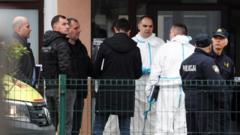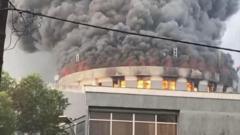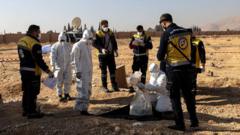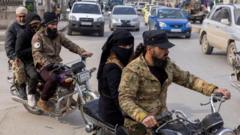The recent upheaval in Tbilisi focuses on the detainment of Nika Gvaramia, the leader of the opposition Coalition for Change, as protests continue against the ruling Georgian Dream party's decision to suspend the country's EU accession talks. Gvaramia was taken from the party's headquarters, reflecting a broader crackdown on dissent as activists rally against what they perceive as authoritarian measures. Prime Minister Irakli Kobakhidze has condemned the protests, labelling them as violent and warning those behind them will be held accountable.
Georgian Opposition Leader Detained Amid Ongoing Protests
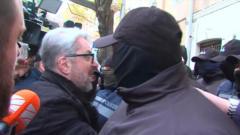
Georgian Opposition Leader Detained Amid Ongoing Protests
Amid escalating tensions in Georgia, an opposition leader has been forcibly removed from his party offices by police, following accusations of violence against pro-EU demonstrators.
The protests ignited after a controversial election, resulting in over 330 arrests amid claims of government oppression. Rights organizations allege brutality by police against demonstrators. The opposition accuses the ruling party of moving Georgia toward Russian influence, sparking fears of an erosion of democracy and civil liberties.
Gvaramia's detention follows a series of raids on opposition offices, consolidating concerns over state repression. Despite this, opposition leaders assert they will continue to fight for their nation's alignment with the European Union, emphasizing the importance of national sovereignty in the face of increasing authoritarianism.
The Georgian public remains divided, with some supporting the government's handling of the protests, while others express concern over the implications for civil rights and international relations.
Gvaramia's detention follows a series of raids on opposition offices, consolidating concerns over state repression. Despite this, opposition leaders assert they will continue to fight for their nation's alignment with the European Union, emphasizing the importance of national sovereignty in the face of increasing authoritarianism.
The Georgian public remains divided, with some supporting the government's handling of the protests, while others express concern over the implications for civil rights and international relations.







